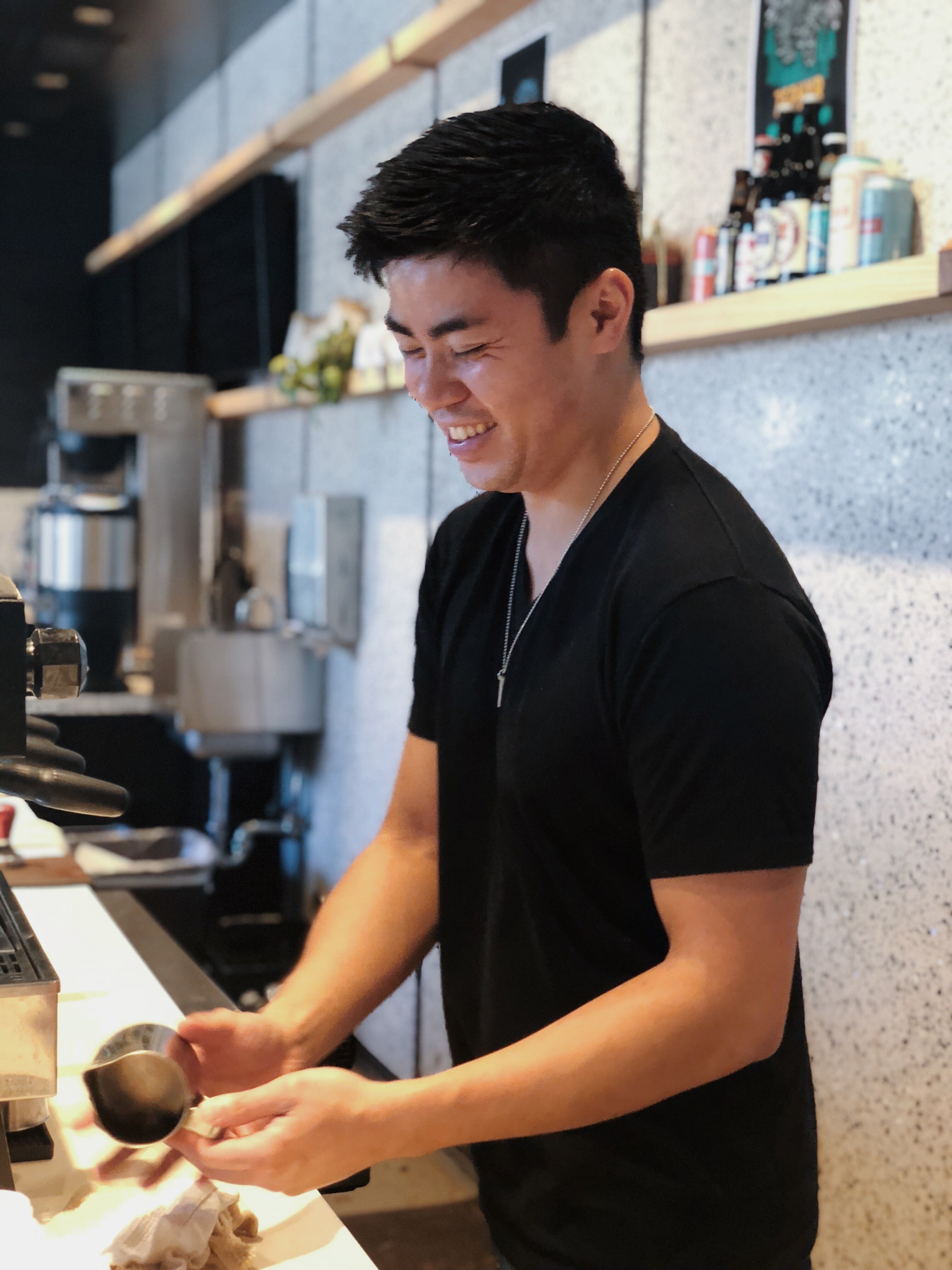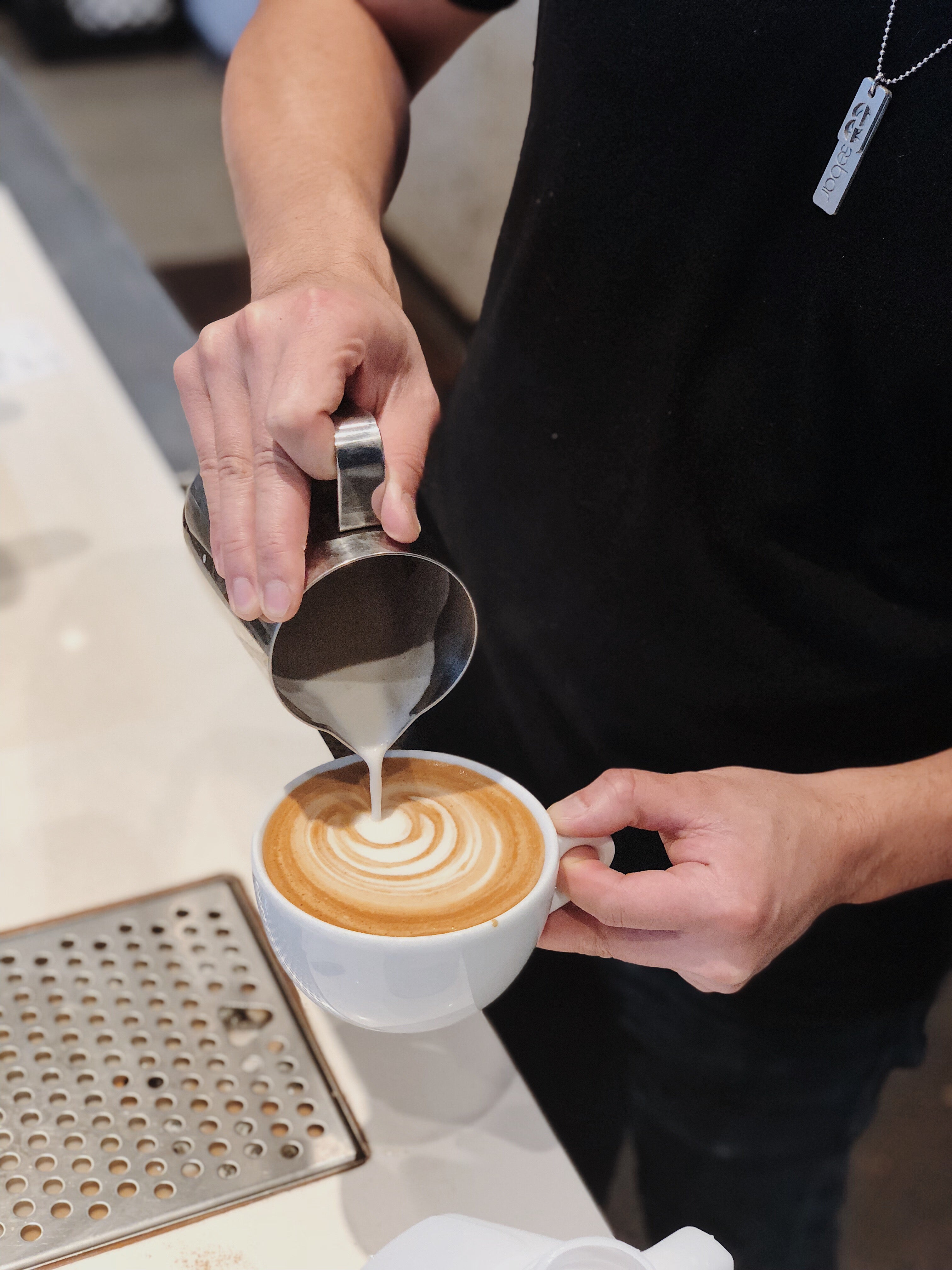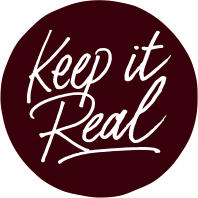Here's another installment of our At the Bar series, where we interview Coffeebar's bold, bad ass baristas, chefs and Hospitalians to learn about their journey and passions, both in front of and away from the espresso machine. We hope these conversations inspire and demystify the people and process behind your cup of coffee. These are the hands, hearts and minds you'll find at the bar.
This week, we're talking to Coffeebar Menlo's Front of House Manager Issac Lo. Enjoy!
Can you describe your path into specialty coffee?
Before coffee, I went to the University of California, San Diego and majored in economics, with minor in accounting. I eventually earned my CPA and lived in Los Angeles as an accountant, but I hated sitting behind a computer. I found myself in Hong Kong when I decided to get my first job in the food industry.
What was that first job?
I was a kitchen helper at a fine dining restaurant in a commercial building. I started at the bottom and did it all -- from cutting up vegetables to plating to prepping desserts as a prep cook.
How did you go from fine dining to coffee?
Working with desserts inspired me to work as a baker for the following year. So I was learning how to bake bread and thought to myself, “Why don’t I try coffee so I can open my own cafe one day?” I liked the idea of bringing together fresh baked bread and coffee.
My first coffee shop job was at 18 Grams in Hong Kong. It was tough because I had no coffee background. All I could do was make my own drink or practice with soap and water -- a great way to practice microfoam without wasting milk. If you were going to use milk and espresso instead of soap and water, the culture in Hong Kong was that you could practice as much as you wanted, but you would have to drink it. I was at a point where I was drinking 5 lattes a day.
After training as a barista at 18 Grams, how did you end up in Australia?
A coworker of mine said that if you’re really into coffee, you should go to Australia and work under a Working Holiday Visa. I believe you can excel in any industry if you put your mind to it. So I took a leap of faith and moved to Melbourne -- but it wasn’t an easy move. I almost went back to Hong Kong within the first two weeks because I couldn’t find a job; a lot of people don’t want to hire backpackers.
I was on the verge of leaving and one of the coffee shop owners called me in for an interview and I was like, “Hell yeah!” I ended up working at a food truck serving donuts and coffee for a whole year. It was fun to travel with them and work different events like the Royal Show. After working on a food truck, I realized my workflow was slow. The biggest takeaway from that job was learning how to become efficient and make coffee non-stop.
What did you do after your visa expired?
After Australia I came back to America in Feb 2017. I spent a year at Blue Bottle, worked at a small coffee shop in San Mateo, managed a Scandinavian restaurant in San Francisco, and eventually found my way to Coffeebar. I was used to a fast-paced, high volume atmosphere and loved how much of an emphasis there was on specialty coffee.
You want to open your own cafe one day. In your opinion, what elements help separate a great cafe from a good one?
I’ve seen a lot of specialty coffee shops devote 80% of their workspace into making coffee, and I respect that, but financially, that doesn’t makes sense. You can go a whole day without drinking coffee, but you have to eat. Also, the best baristas focus on latte art. Why? Because it’s tangible. A lot of coffee ends up on Instagram, and if you don’t do your latte art, I can’t tell what’s better. So, yeah, get your latte art “Instagram worthy,” and you know it’s high-quality.


